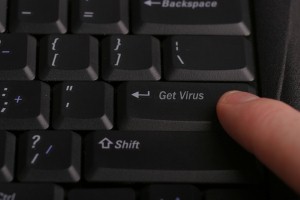
Does my computer have a virus?
By admin on June 30, 2011
Most PC users dread the day their computer starts acting suspiciously. Some may notice certain programs are running slowly, or that their browser is restricting access to certain websites. Others may not be able to pinpoint exactly what's wrong, but their intuition tells them their PC is simply acting "funny."
One of the first assumptions in these instances is that the computer has a virus, but the nature of some sophisticated computer viruses makes it difficult to know for sure. Listed below are a few ways PC users can identify if their computer is infected, whether it be by low-class malware or something much more sinister that requires professional computer repair.
Know the symptoms
PC users should be aware of a few telltale signs of a virus infection.
1. Pop-up ads – While standard pop-up ads on regular websites can be annoying, they aren't necessarily a sign that a computer is infected. More concerning are ads that alert the user to a virus infection, and warn them that they need to install certain virus removal software to protect their computer. Those types of pop-ups generally disguise themselves with legitimate-looking logos and graphics.
2. Certain programs or updates won't work – Some viruses might block access to computer security programs or standard Windows updates. A user's computer might also be running slowly or sluggishly, another potential sign of malware.
3. The browser is acting funny – A virus might be present if a user's browser opens up to a website that's not their default home page.
Though these signs can be dead giveaways that a virus is present, not all infections will be immediately obvious. Users who are suspicious of their computer's odd behavior should run scans with their anti-virus program as often as possible. That software should also be updated frequently with the latest malware protection, since new viruses are developed constantly.
For a Free Computer Repair Quote Call (202) 670-9966
Related Maryland Virus Removal Articles
Internet Browser SecuritySecurity alert: Scam veiled as government correspondence
Internet Connection Issues—Could It Be The Router?
Weighing data backup options
Help! I got the FBI Virus



Leave a Reply